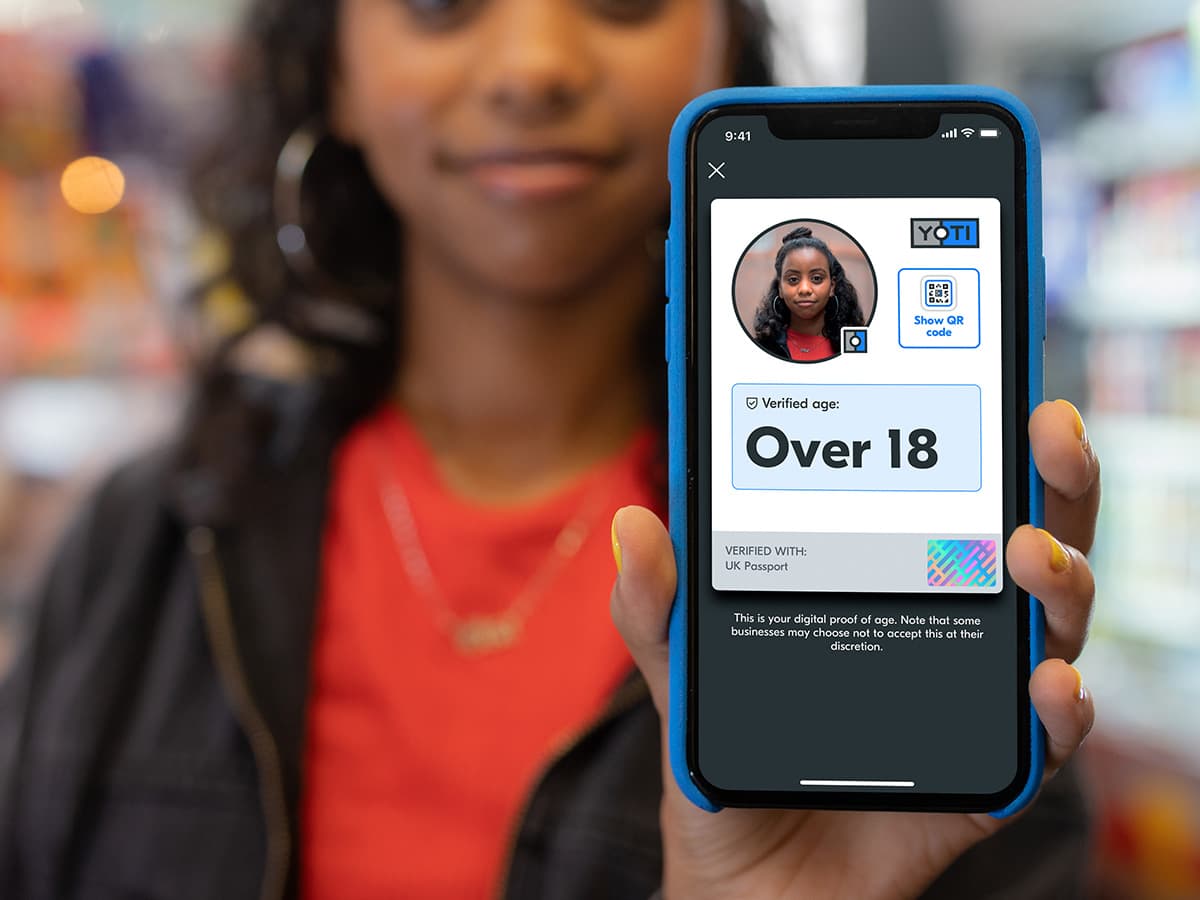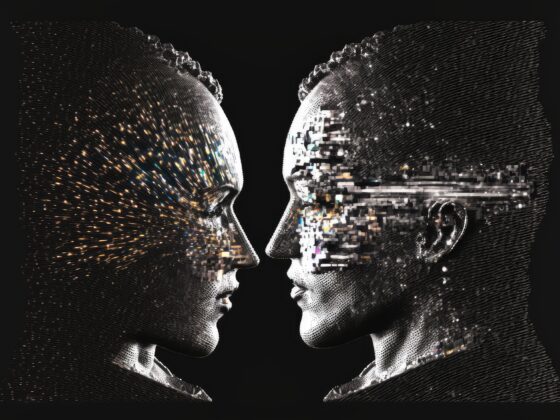Five major UK supermarkets are set to trial age estimation technology to accurately guess customers’ ages when purchasing alcohol. Co-op, Tesco, Asda, Aldi and Morrisons are participating in a government “regulatory sandbox” between January and May 2022, testing the technology’s ability to facilitate alcohol sales safely and swiftly.
Aldi and Yoti are using AI for age estimation for purchases. The Digital ID platform ‘assesses whether a consenting customer is old enough to buy age restricted items by analysing their face biometrics.

Yoti, a digital identity platform used by the NHS, claims to have developed the world’s most accurate age estimation technology, training its AI-powered algorithm to check the age of faces with an average accuracy of 2.2 years, rising to one-and-a-half years among those aged between 16 and 20.
The technology, which is distinct from facial recognition, will be built into supermarket self-service terminals, taking photos of consenting customers’ faces for analysis and deleting them once the process is completed.
Their support page claims that their scans of your face can be used to create biometric keys to make accounts that only you can access. Yoti is headquartered in the UK.

The Home Office launched the pilot scheme in March 2021, inviting tech providers, retailers, bars, and restaurants to propose digital methods of checking customers’ ages with a view to starting trials last summer. However, the public experiments were pushed back into the new year.
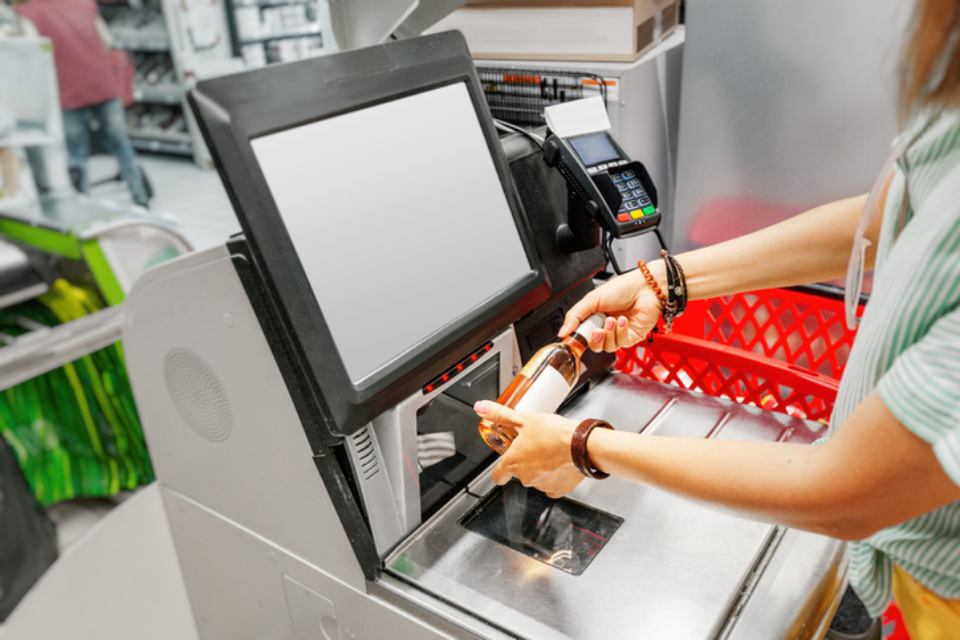
Baroness Williams of Trafford said: “Having a robust age verification system is critical in preventing the sale of alcohol to children and the harm under-age drinking causes. These pilots will allow us to explore how new technology can improve the experience of buying and selling alcohol, both for the consumer and the retailer.”
Currently, it is not possible to use a digital ID as proof of age for the purchase of alcohol in England and Wales. The pilots will allow a wide range of digital age verification technology to be tested, and the findings will be used to understand the impact of this technology and inform future policy, as part of the government’s ambition to create an innovative digital economy.
“The major advantage from a retailer’s point of view is that these kinds of systems lead to less aggression and abuse towards supermarket workers when underage people are refused alcohol.” said a BRC spokesperson British Retail Consortium (BRC).
If the system determines the customer looks younger than the set age, they have the option to share their birth date anonymously with the system via Yoti’s smartphone app by scanning a QR code on the terminal’s screen. The smartphone app must be linked to an accepted ID document, such as a driving licence.
Yoti is also one of the leading industry voices advocating and pushing for the passage of the Online Safety Bill here in the UK.

According to their website: Digital ID – Your customers scan a QR code using their digital ID app and share a verified age attribute. This requires a one-time onboarding process with an ID document and a selfie. Once created, users are verified for life and can use their digital ID to authenticate themselves with businesses online and in person.
Yoti confirmed the kiosks will simply analyse the images, then delete them immediately after the process is completed. No human will ever see the photos, and the only data shared with the retailer is the age check.
The Government of Jersey for example citizens can file a tax return and apply for Settled Status using Yoti. So, this technology won’t be limited to just buying over age items in a supermarket.
Yoti has been approved to commence accreditation as a private digital identity provider under the Australian Government’s Trusted Digital Identity Framework. As part of Australia’s drive to be a leading digital economy by 2030, the Australian Government Digital Identity System – led by the Digital Transformation Agency (DTA) – is transforming the way people do business; merging the physical and digital worlds to transform every aspect of life.

Yoti are now also providing digital ID cards for secondary school students in Auckland, New Zealand. The cards will be distributed in collaboration with Auckland Transport (AT) and will be offered at no cost to the schools themselves.

According to Yoti and AT, the new digital student cards will reduce administrative costs for schools since they will no longer need to waste as much time and money printing plastic cards. The digital cards are stored in a wallet on the students’ smartphones and can be easily replaced in a matter of minutes if a student’s phone gets lost or stolen. That creates further savings for schools, since they will no longer need to reissue physical cards that have gone missing.
Yoti has announced that its digital identity app supports the DBS checks with ID document authentication and selfie biometrics in the UK, CityAM reported.

The UK Post Office and Yoti have also announced the availability of digital identity apps, following the permanent government policy change regarding the use of Digital Identity for Right to Work (RTW) as well as Basic, Standard and Enhanced Disclosure and Barring Service checks.
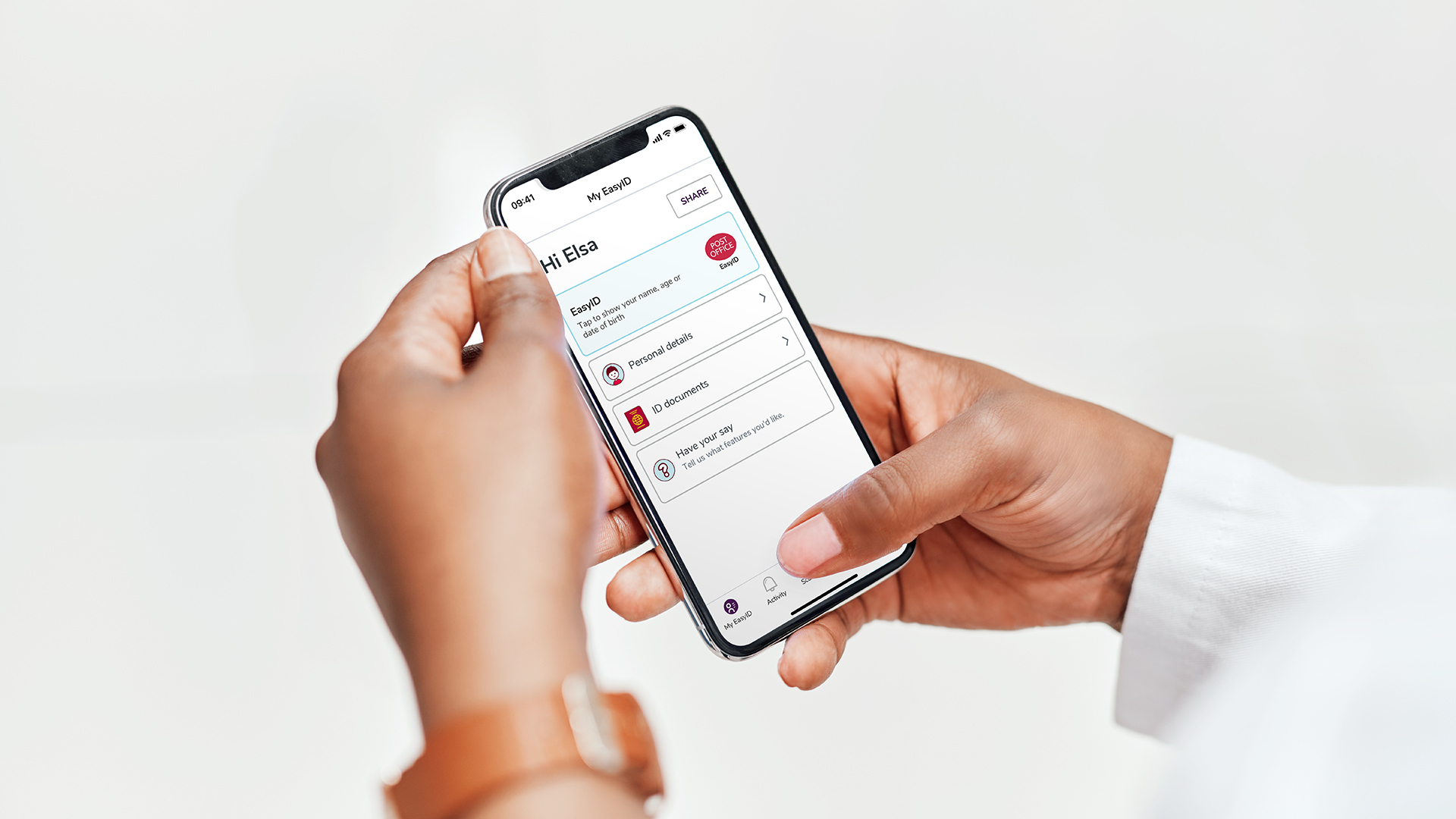
The UK Post Office service is offering YoTi EasyID app: A smarter way to prove who you are in store and online, building the UKs trusted digital identity network.
Yoti and its technology is helping to stop the spread of child sexual abuse material on end-to-end encrypted social media and online messaging platforms with UK government funding.
We can dig a little deeper. Yoti have recently joined the WEF coalition to ‘Advance Global Digital Safety Campaigns.’
The WEF website describes the Global Coalition for Digital Safety as a public-private platform for global, multi-stakeholder cooperation to develop innovations and advance collaborations that tackle harmful content and conduct online.
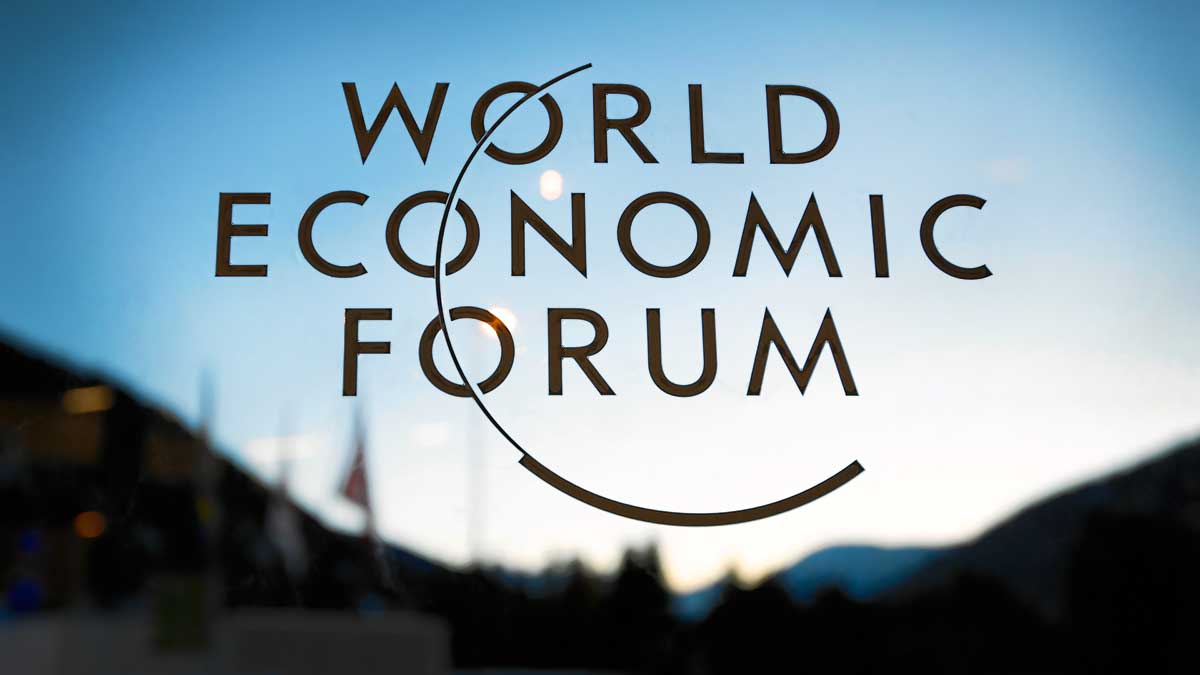
Previously Yoti have also contributed to the Good Health Pass Collaborative’s [ID2020] Interoperability Covid pass Blueprint to ensure the protection of principles around privacy is built into digital health passes.

The Good Health Pass Interoperability Blueprint was launched in August 2020 to establish a common standard for verifiers to request and receive the data they need to validate the authenticity of health status claims, while applying the principle of data minimization.
“We’re delighted to see our work with Good Health Pass live with the Good Health Pass Interoperability Blueprint, it has huge potential to change the way people travel in the backdrop of Covid-19,” states Yoti Chief Technology Officer Paco Garcia. “I’ve been honoured to co-chair the identity binding working group of the Good Health Pass, working side by side with many competitors.”
“We’re striving for interoperability as digital health credentials become more widely available and relied upon. We support the provision of health information in addition to vaccination cards or test results with flexibility for all relying parties and different country requirements. The goal is to give individuals one digital ID for all their identity needs.”
Earlier in the pandemic: Lord Bethell met with Yoti on 13 April 2020 to discuss COVID-19 certification, and IBM on 20 April 2020. Nadine Dorries, the Minister for Patient Safety at the Department for Health and Social Care, also met with the Behavioural Insights Team on 9 April 2020 to discuss COVID-19 Immunity Passporting
And Robin Tombs, the chief executive of digital identity company Yoti said it would be “technically simple” to extend its work with coronavirus testers at GeneMe to antibody tests but: “The science on Covid-19 immunity is still too early to issue meaningful immunity passports.”
Yoti have been heavily involved within the vaccine passport sphere by making it easier for EU residents to prove their COVID-19 Vaccination status.
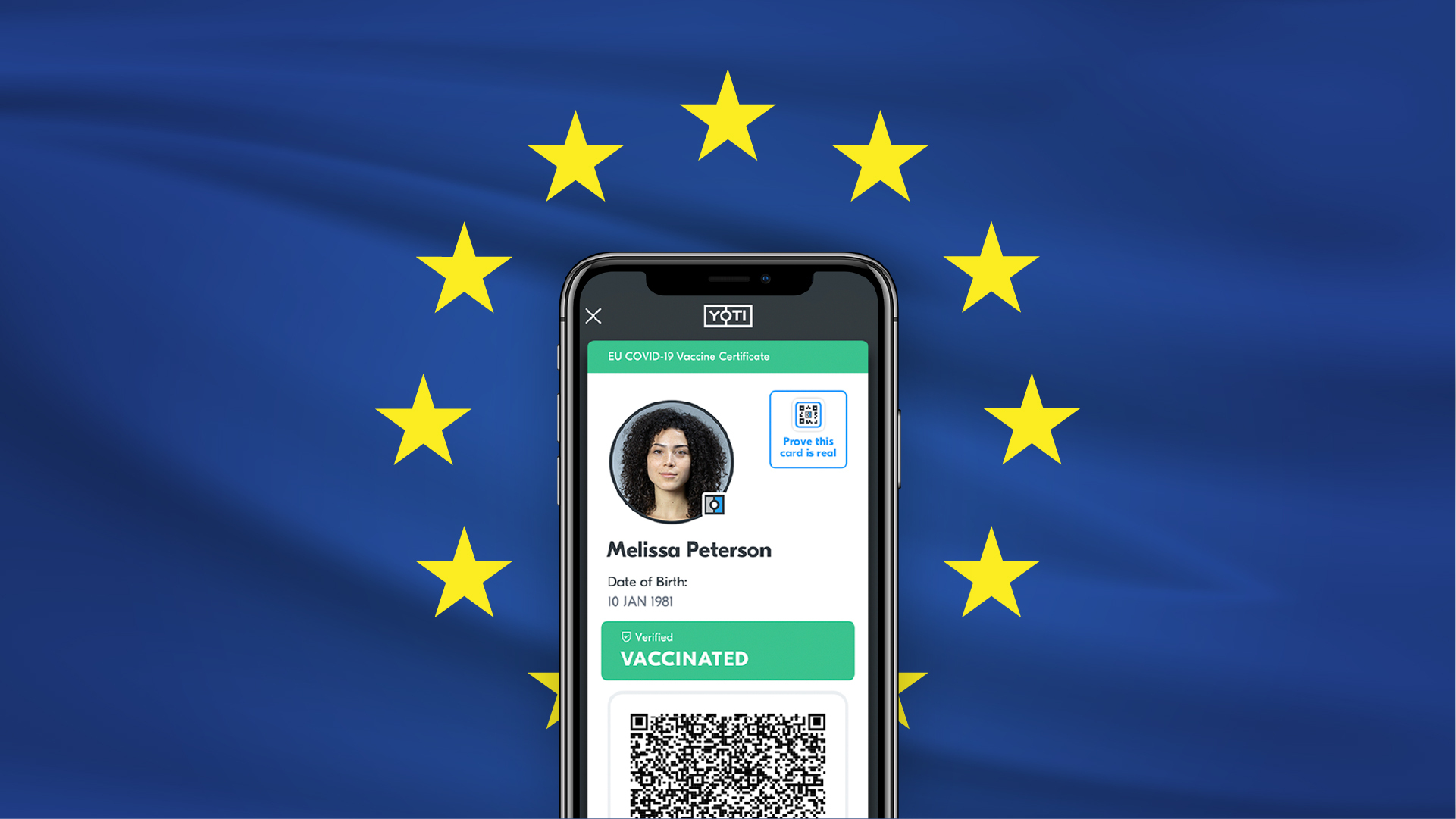
Julie Dawson Director of Regulatory and Policy at Yoti even contributed to the “How digital identity can improve lives in a post-COVID-19 world.” Which is a part of the ‘Davos Agenda.’ And their moto is: “Digital identity as a force for good.”

This WEF paper pushed the notion that Human-centric digital identities is an enabler to rebuild economy and trust. The paper quotes: Vidya Shankar Narayan, Assistant Deputy Minister and CIO, Agriculture and Agri-Food Canada and previously Director General, Digital Government: “As proven in Canada, a digital ID ecosystem is not only a motor to connect people, governments and the private sector in a trusted and transparent way – but it also accelerates participation in the economy, work and mobility”
Yoti are members of the WEF Digital Identity Innovators, associate members of DPA Age Verification and Internet Safety Steering Group and sponsor of the UK All Party Parliamentary Group for Digital Identity.

Banking too: Ecospend, the leading UK provider of open banking technology, has partnered with digital identity network, Yoti, to integrate open banking services with its suite of identity solutions including the Yoti digital ID app.

What’s next? Yoti are currently working with over 600 companies that span national retailers, social media, online dating, e-commerce, financial services, crypto and many more. They are the strategic partner of Post Office for digital identity and the eID provider for both the States of Jersey and the Improvement Service Scotland. They are already working with several national charities such as the NSPCC and are pioneering responsible age verification in the ICO Sandbox and the UK Home Office Sandbox.
As we can see from the above links and descriptions a key WEF, ID2020 and Good Health Pass partner and digital identity developer are already making inroads from Covid vaccine passports into fully fledged digital identity eco systems where all manner of new digital services and platforms are being designed and deployed, under the radar and guise of keeping us all safe.


